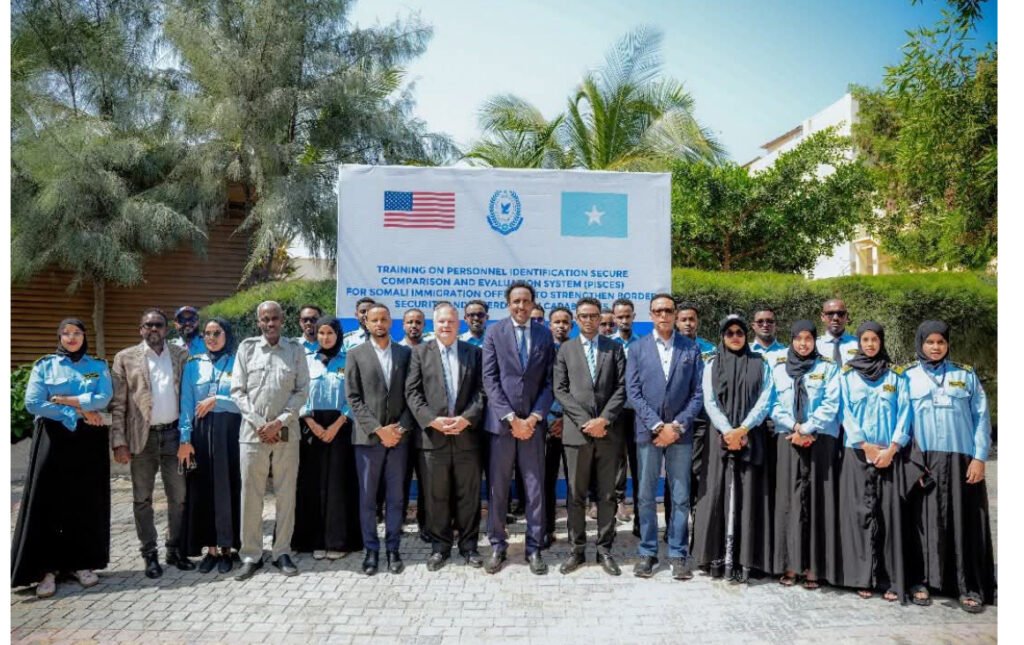Wednesday, July 2, 2025 — HAN
Mogadishu — The Somalia Immigration and Naturalization Agency has launched a new biometric system to manage border control, aimed at fighting human trafficking, reducing illegal migration, and strengthening national security, particularly in preventing terrorism.

The system, called PISCES (Personal Identification Secure Comparison and Evaluation System), was officially implemented for the first time at Aden Adde International Airport in Mogadishu on June 30, 2025, with technical support and training provided by the United States government.
PISCES collects personal data such as fingerprints and facial images of people entering or leaving the country, enabling immigration officers at border points to quickly verify identities and immediately cross-check them against national and international security databases.
The Somalia Immigration Agency hopes this system will become a vital defense against terrorist threats and criminal networks operating along the borders.
This new system builds on earlier U.S.-backed efforts in Somalia, starting with the MIDAS program in 2018, which introduced fingerprint scanning at key ports. PISCES is also aligned with Somalia’s National Digital Identification Program, launched in 2023, which integrates biometric data across government agencies to improve security and public services.
Mr. Mustafa Duhulow, Director General of the Immigration and Naturalization Agency, noted that this is not just a technology initiative, but a step towards safeguarding citizens and enhancing public confidence. A representative from the U.S.
Embassy added that such systems save lives, prevent crime, and help build trust in government institutions.
PISCES is operated in accordance with Somalia’s 2023 Data Protection Law, which sets regulations for managing personal and biometric data while protecting individual rights and national security.
Globally, biometric systems are increasingly being adopted at borders to strengthen security. The European Union plans to launch its Entry/Exit System (EES) in October 2025, while Malaysia is exploring advanced technologies such as facial recognition and biometric cameras at its borders.
By adopting PISCES, Somalia demonstrates how biometric technology has become a critical pillar of modern security, reflecting broader regional and global shifts in identity management and the fight against terrorism and crime.





